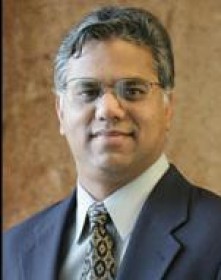
3:30 pm to 4:30 pm
Event Location: 1305 Newell-Simon Hall
Bio: Dr. Satyandra K. Gupta is a Professor in Mechanical Engineering Department and the Institute for Systems Research at the University of Maryland, College Park. He is also director of the Maryland Robotics Center. Prior to joining the University of Maryland, he was a Research Scientist in the Robotics Institute at Carnegie Mellon University. He received a Bachelor of Engineering (B.E.) degree in Mechanical Engineering from the University of Roorkee (presently known as Indian Institute of Technology, Roorkee) in 1988, a Master of Technology (M. Tech.) degree in Production Engineering from Indian Institute of Technology, Delhi in 1989, and a Ph.D. in Mechanical Engineering from the University of Maryland in 1994. He is a fellow of the American Society of Mechanical Engineers (ASME). He has also served as an Associate Editor for IEEE Transactions on Automation Science and Engineering, ASME Journal of Computing and Information Science in Engineering, and SME Journal of Manufacturing Processes.
Dr. Gupta’s interest is broadly in the area of automation. He is specifically interested in automation problems arising in Design, Manufacturing, and Robotics. His current research focus is mainly on simulation-based computational synthesis. He has authored or co-authored more than two hundred articles in journals, conference proceedings, and book chapters. Awards received by Dr. Gupta include a Best Paper Award in 1994 ASME International Conference on Computers in Engineering, a Best Paper Award in 1999 ASME Design for Manufacturing Conference, a Young Investigator Award from Office of Naval Research in 2000, a Robert W. Galvin Outstanding Young Manufacturing Engineer Award from Society of Manufacturing Engineers in 2001, a CAREER Award from National Science Foundation in 2001, a Presidential Early Career Award for Scientists and Engineers (PECASE) in 2001, a Best Paper Award in 2006 ASME Computers and Information in Engineering Conference, and a Best Paper Award in 2010 ASME Mechanism and Robotics Conference.
Abstract: Traditionally, innovation and discovery have been the domain of highly creative individuals who rely on their intuition and insights to develop new knowledge, ideas, concepts, and products. Over the last two decades, the advent of information technology has significantly influenced all facets of the engineering practice. So a natural question is —- what role can computers play in the innovation and discovery process? Recent advances in the high fidelity simulations enable us to perform accurate analysis of proposed solutions. The advent of low-cost, high-performance computing architectures enables us to explore a very large number of solutions in a short period of time. Advances in procedural representations enable us to automatically generate highly sophisticated candidate solutions. Hence, my premise is that simulation-based computational synthesis can now facilitate innovation and discovery process. This seminar will begin by describing a simulation-based computational synthesis framework. We will use three different examples to illustrate how the proposed framework can be used to solve interesting robotics problems. The first example will show how this framework can be used to automatically synthesize behaviors to facilitate mission planning for unmanned sea surface vehicles. The second example will illustrate how this framework can be used to synthesize transmission mechanism of a bird-inspired flapping wing micro air vehicle. The final example will describe the application of this framework in the development of automated motion planning strategies
for assembling micro particles into 3D structures using optical tweezers.
